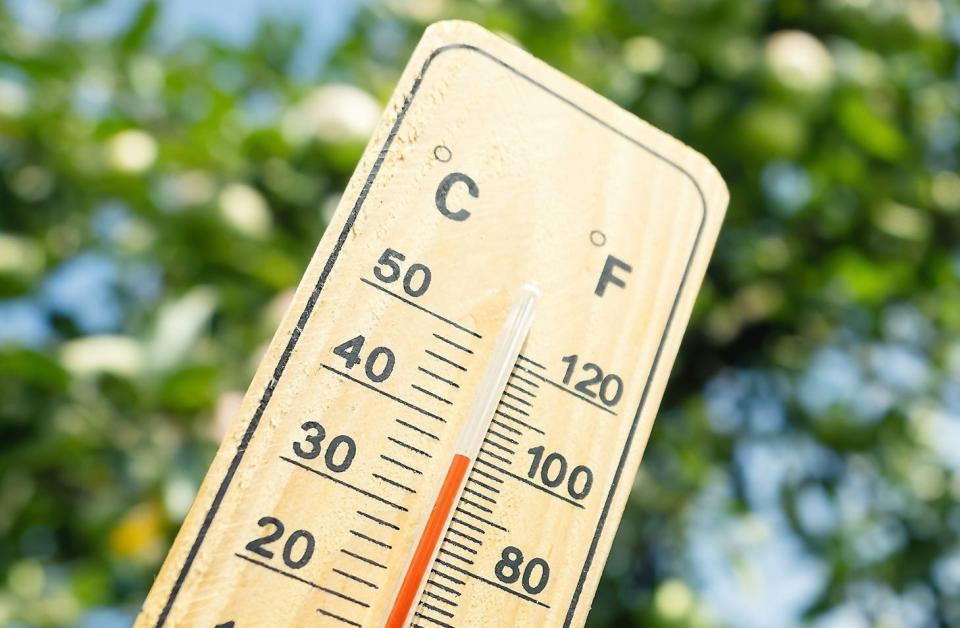Weather service is warning of dangerous heat this week. Here's how to cope without AC
Brace yourself: a heat wave is coming.
Meteorologist Torry Dooley of the National Weather Service in Norton told USA Today Network New England that Massachusetts is now in a "prolonged stretch of heat."
This week, the state will experience temperatures in the high 80s and 90s. Some areas of the Commonwealth will see temperatures as high as 106 degrees when the humidity is factored in.
"And the overnight temperatures won't get much better," Dooley said on Monday, adding that low temperatures will only be around 70 degrees in the evening hours for the remainder of the week.
A heat wave is coming!: What to know about the 'prolonged' stretch of hot weather.
“The public should prepare for extreme heat," Massachusetts Department of Transportation (MassDOT) Secretary and CEO Monica Tibbits-Nutt stated in a release on Monday. "We are urging our workforce to take the proper safety precautions and encourage members of the public to protect themselves and their families.”
It's so hot it may impact infrastructure.
“The traveling public should also be aware that the operation of certain transportation infrastructure, especially moveable bridges, may be adversely impacted by the heat," Mass DOT Highway Administrator Jonathan Gulliver said in a release.
In light of all these warnings, are there ways to beat the heat? Here are some suggestions from some medical experts, and from the Mass DOT.
What are some ways to cope with the current heat wave?

The following tips are from a release from the MetroWest Medical Center, located in Framingham and the Mass DOT.
Wear natural fabrics: Loose-fitting, lightweight white cotton or linen is cooler. Dark fabrics attracts more light and can cause the body to get hotter.
Drink lemon water: Drink water with lemon to replace the salt lost from excessive sweating.
Eat light: Foods rich in fat and protein take longer for the body to digest, which requires additional metabolic heat. Eating light food such as salads can help feel hydrated.
Cool down pulse points: Use frozen water bottles at the bottom of the throat, behind the ears, on wrists, inside the elbow and behind the knees.
Use aloe on sunburns: Sunburns slow the skin’s ability to cool itself off.
Keep the sun out: Invest in room-darkening curtains to help keep the light and heat out more efficiently. Close windows and pull shades.
Avoid hot appliances: Try not to use the dryer or oven as they add heat in the home.
Slow down: Don't take on strenuous activities during the hottest part of the day (usually between 11 a.m. to 3 p.m.). Spending only two hours in AC can help reduce heat stroke risk.
Stay hydrated: Drink plenty of water, even if not feeling thirsty. Avoid alcohol and caffeine.
Avoid hot vehicles: Never leave children or pets alone in a closed vehicle. Even with the windows cracked open, interior temperatures can rise almost 20°F within 10 minutes.
Stay on low floors: If you do not have air conditioning, stay on your lowest floor, out of the sun.
Fans won't cut it: Electric fans may provide comfort, but when the temperature is in the high 90s, fans will not prevent heat-related illness. Taking a cool shower or bath or moving to an air-conditioned place is a much better way to cool off. Consider spending time in air-conditioned public spaces, such as schools, libraries, theaters, and other community facilities.
In case of emergency: Check with your local authorities or Call 2-1-1 to find locations of cooling centers or shelters near you.
Be familiar with the basics: Know the symptoms of, and watch out for heat-related illnesses.
Be a good neighbor: Check on family, friends, and neighbors, especially the elderly.
Travel warning: Travelers are advised to check their vehicles before leaving on trips to ensure radiators have sufficient coolant and that other fluid levels are keeping with safe operation. Anyone driving is also advised to plan trips during the cooler times of the day, in the early morning or late afternoon hours.
This article originally appeared on wickedlocal.com: Heat wave to bring dangerous temps to MA. How to cope without an AC
